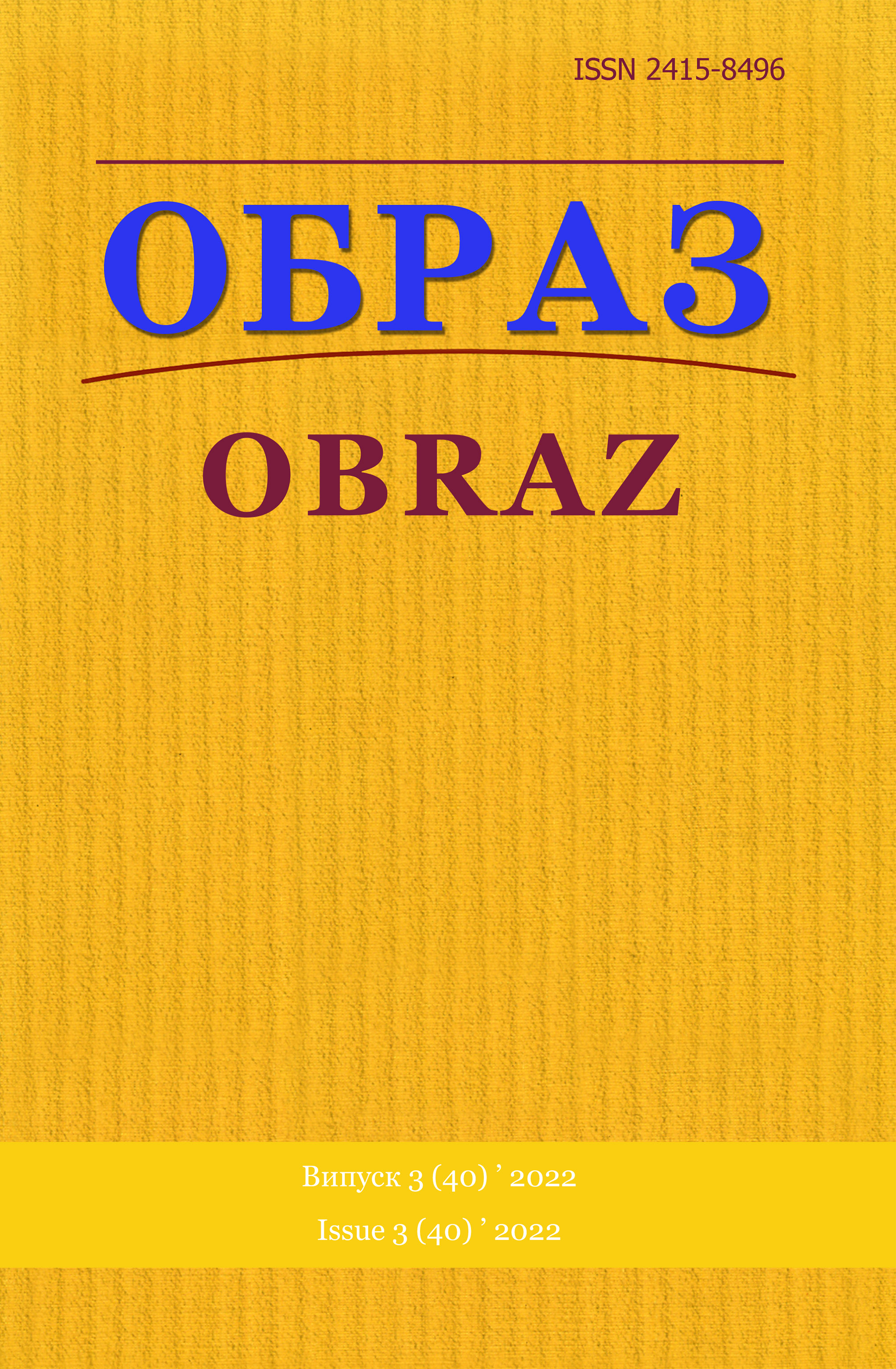Анотація
Стаття присвячена визначенню ролі емоцій та емоційних станів як інструментів відображення відчуттів і переживань, емоційного досвіду військових у щоденниках про війну, їхньому впливу та мотивації. Встановлено, що емоції та емоційні стани визначають специфіку нарації в щоденниковому тексті, засоби відтворення суб’єктивності, композиційні особливості, спосіб комунікації з героями, читачами та автокомунікації. Виокремлено та систематизовано емоції (серед них первинні, вторинні), названі й неназвані, домінантні емоційні стани автора, героїв та читачів, що стали основою для написання «Щоденника військового лікаря» В. Чернієнка й репрезентували аксіологічний аспект феномена війни.
Посилання
1. Butuzova, Y. (2011), «Psychological essence of emotional state of personality, Omskyj vestnyk. Psyxologycheskye nauky [Omsk vestnik. Psychological sciences], no. 5. рp. 173–175, available at: https:// cyberleninka.ru/article/n/psihologicheskaya-suschnost-emotsionalnogo-sostoyaniya-lichnosti/ viewer.
2. Varikasha, M.M. (2010), «Non-fiction literature: between fact and fiction», Aktualni problemy slovyanskoyi filologiyi [Actual problems of Slavic philology], іss. XXIII, рart 3, pр. 1–12.
3. Halych, O. (2013), «Diary as a genre of memoir literature», Visnyk Zaporizkogo nacionalnogo universytetu. Filologichni nauky [Bulletin of Zaporizhzhya National University. Philological sciences], іss. 3, pр. 31–36.
4. Ignatieva, S. (2018), Diariush as a Genre of Diary Discourse, Presto, Dnipro, 30 p.
5. Korman, B.O. (1972), Study of the Text of a Work of Art, Enlightenment, Moscow, 111 p.
6. Lebedinsky, M., Myasishchev, V. (1966), Introduction to Medical Psychology, Meditsina, St. Petersburg, 324 p.
7. Mykhailyn, I. (2013), Journalism: Dictionary Reference Book, Akademvydav, Kyiv, 320 p.
8. Nashkhoeva, M. (2011), «Linguistic concept of emotions and emotionality of the text», Vestnyk YuUrGU. Ser. «Lyngvystyka» [SUSU Herald. Ser. «Linguistics»], іss. 1, рp. 92–105.
9. Razuvanova, Y. (2013), «Language means of expressing emotional state», Translation innovations: supplement and report of the third All-Ukrainian scientific-practical conference, March 15-16, 2013, Sumy, рp. 119–123.
10. Тanchyn, K.Y. (2005), «Diary as a form of self-expression of the writer», Abstract of the PhD diss. (Philology), Ternopil, 20 p.
11. Fortunatov, G. (1976), General Psychology : textbook, Enlightenment, Moscow, 250 p.
12. Chernienko, V.V. (2020), Diary of a Military Doctor, Folio, Kharkiv, 188 p.
13. Chyzh, N.O. (2017), «Military diary as a «Text of Memory» in conditions of extreme stress of the personality, Naukovi zapysky Nacionalnogo universytetu «Ostrozka akademiya». Seriya «Filologichna» [Scientific Notes of the National University of Ostroh Academy. Series «Philological»], vol. 65, available at: https://eprints.oa.edu.ua/7685/1/22.pdf (date of access: 21.01.21).
14. Izard, C. (1991), The Psychology of Emotions, Plenum Publishing Corporation as a part of Springer Science, New York, 453 p.
15. Plutchik R. (1983), Emotion: Theory, research, and experience: Theories of emotion, Academic, New York, vol. 1, рp. 57–71.

Ця робота ліцензується відповідно до ліцензії Creative Commons Attribution 4.0 International License.

